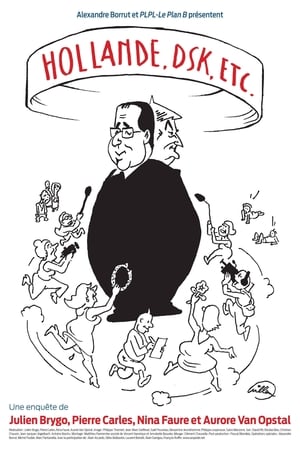
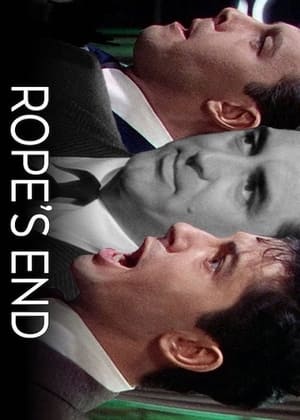
Rope’s End(2022)
A fictionalized biography on John Dall who was in two great movies - Alfred Hitchcock’s Rope (1948) and Joseph H. Lewis’ Gun Crazy (1950).
Movie: Rope’s End

Rope’s End
HomePage
Overview
A fictionalized biography on John Dall who was in two great movies - Alfred Hitchcock’s Rope (1948) and Joseph H. Lewis’ Gun Crazy (1950).
Release Date
2022-05-21
Average
1.5
Rating:
0.8 startsTagline
Genres
Languages:
EnglishKeywords
Similar Movies
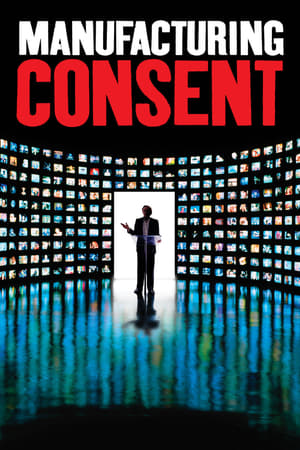 7.6
7.6Manufacturing Consent: Noam Chomsky and the Media(en)
A film about the noted American linguist/political dissident and his warning about corporate media's role in modern propaganda.
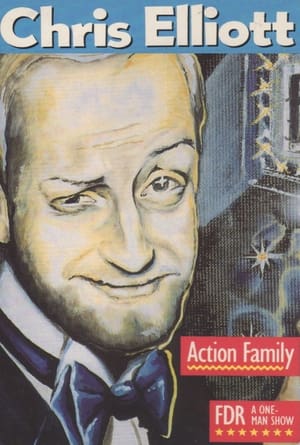 0.0
0.0Chris Elliott's FDR -- A One-Man Show(en)
Chris Elliot plays FDR in his live "One Man Show" about the life and times of the president, however, he looks and sounds nothing like the man and he re-enacts events from Roosevelt's life that never happened.
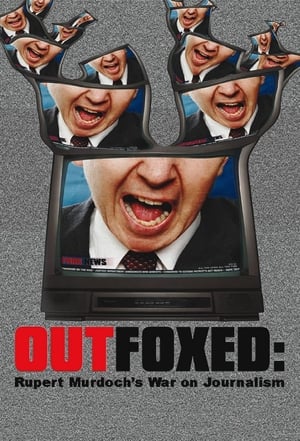 7.1
7.1Outfoxed: Rupert Murdoch's War on Journalism(en)
This film examines how media empires, led by Rupert Murdoch's Fox News, have been running a "race to the bottom" in television news, and provides an in-depth look at Fox News and the dangerous impact on society when a broad swath of media is controlled by one person. Media experts, including Jeff Cohen (FAIR) Bob McChesney (Free Press), Chellie Pingree (Common Cause), Jeff Chester (Center for Digital Democracy) and David Brock (Media Matters) provide context and guidance for the story of Fox News and its effect on society. This documentary also reveals the secrets of Former Fox news producers, reporters, bookers and writers who expose what it's like to work for Fox News. These former Fox employees talk about how they were forced to push a "right-wing" point of view or risk their jobs. Some have even chosen to remain anonymous in order to protect their current livelihoods. As one employee said "There's no sense of integrity as far as having a line that can't be crossed."
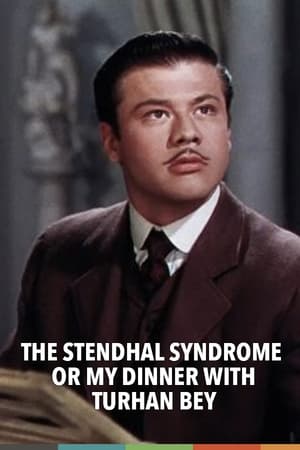 2.0
2.0The Stendhal Syndrome or My Dinner with Turhan Bey(en)
Joan Crawford's close-up in Humoresque. Michelangelo's David and Boticelli's "Birth of Venus". Stendhal was overwhelmed by the cultural overstimulation in Florence, which Graziella Magherini described scientifically in 1979 as Stendhal syndrome. Mark Rappaport describes his fascination for the Austrian actor Turhan Bey, who made a career in exotic roles in Hollywood in the 1940s. A very personal essay about the effect of close-ups, the canvas idols of the dream factory and the role of their admirers and fans.
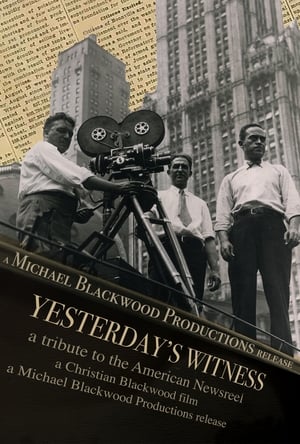 0.0
0.0Yesterday's Witness(en)
For the first 50 years of film history, the newsreel was a fixture in American movie theaters. From 1911 to 1967, these shorts proved an influential source of information – and misinformation – for generations of American moviegoers. Television news and public affairs programs became a great improvement over the scanty information offered by the newsreels. This documentary offers insight into a medium which has disappeared.
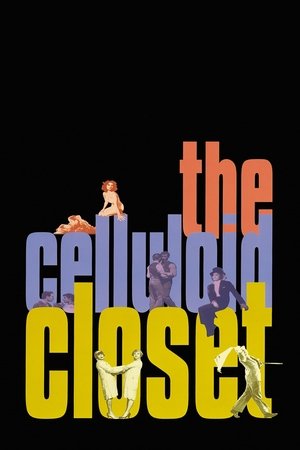 7.2
7.2The Celluloid Closet(en)
What "That's Entertainment" did for movie musicals, "The Celluloid Closet" does for Hollywood homosexuality, as this exuberant, eye-opening movie serves up a dazzling hundred-year history of the role of gay men and lesbians have had on the silver screen. Lily Tomlin narrates as Oscar-winning moviemaker Rob Epstein ("The Times of Harvey Milk" and "Common Threads: Stories from the Quilt") and Jeffrey Friedman assemble fabulous footage from 120 films showing the changing face of cinema sexuality, from cruel stereotypes to covert love to the activist triumphs of the 1990s. Tom Hanks, Susan Sarandon, Whoopi Goldberg, Tony Curtis, Harvey Fierstein and Gore Vidal are just a few of the many actors, writers and commentators who provide funny and insightful anecdotes.
 10.0
10.0Daedalus(en)
"Fly too high and you will burn, go too low and you won't breathe." Shot in just seven consecutive days during the summer of 2023, it concludes the first volume of Bliss, a playlist of sounds and shapes. Daedalus delves into the perilous dance between striving for something and the suffocating pull of stagnancy. This chaotic structure bridges the warnings and epiphanic thoughts of 20th-century thinkers with the lives of today's dreamers.
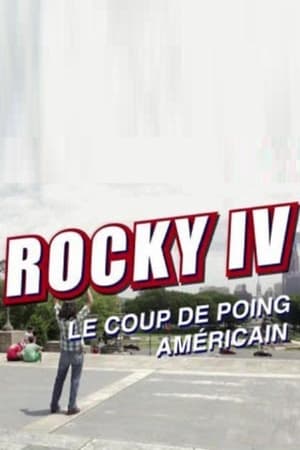 6.4
6.4Rocky IV: The American Punch(fr)
Rocky IV is dually symbolic - it embodies both the victory of the American boxer over the Soviet one and the victory of neo-liberalism over a dwindling socialism. Today, Rocky is held up as a model by some and is a subject of derision for others. An emblem of the 1980s, its culture and its heroes, the film will be the subject of an entertaining analysis of popular culture.
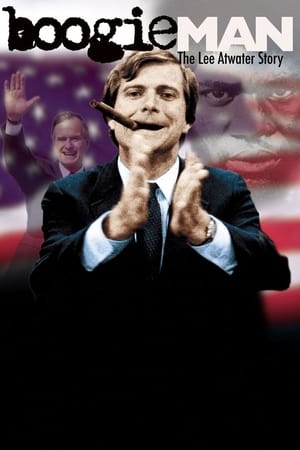 7.7
7.7Boogie Man: The Lee Atwater Story(en)
Boogie Man is a comprehensive look at political strategist, racist, and former Republican National Convention Committee chairman, Lee Atwater, who reinvigorated the Republican Party’s Southern Strategy to increase political support among white voters in the South by appealing to racism against African Americans. He mentored Karl Rove and George W. Bush and played a key role in the elections of Reagan and George H.W. Bush.
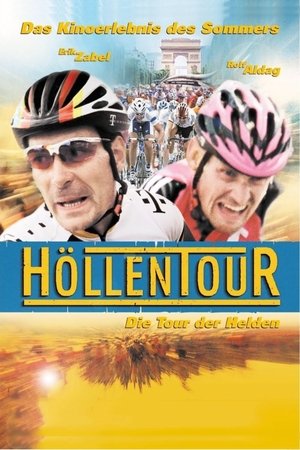 8.0
8.0Hell on Wheels(de)
Year after year hundreds of thousands of fans line the route of the Tour de France, cheering on their heroes and willing them to victory, while millions of viewers worldwide tune in on their televisions. Academy Award-winning director Pepe Danquart, fascinated by the spectacle of the three week race, chose to focus on the courage, the pain and the fear of the riders of the Tour. Training his lens on German superstar sprinter Eric Zabel and his loyal domestique Rolf Aldag, Danquart captures the thrill of the race and the teamwork behind the stars of the peleton. He also shines light on the Tour's supporting cast - the director sportifs, masseurs, and, of course, the wildly enthusiastic fans. Reveling in the stunning landscape - from the Alps to the Pyrenees to the Massif Central to Paris - and with a nice dollop of Le Tour's history, HELL ON WHEELS transcends the sport it celebrates to reveal an astonishing human endeavor.
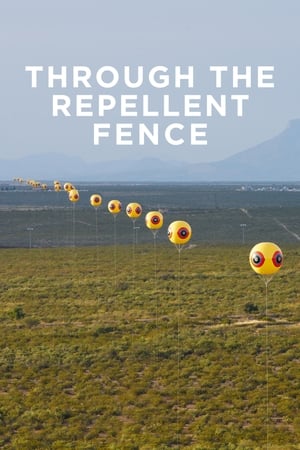 0.0
0.0Through the Repellent Fence: A Land Art Film(en)
The film follows Postcommodity, an interdisciplinary arts collective comprised of Raven Chacon, Cristóbal Martinez and Kade L. Twist, who put land art in a tribal context. The group bring together a community to construct the Repellent Fence, a two-mile long ephemeral monument “stitching” together the US and Mexico.
The Perfect Selfie(fi)
Teenager Olivia Oras has 20,000 Instagram followers. The documentary follows a year of her life.
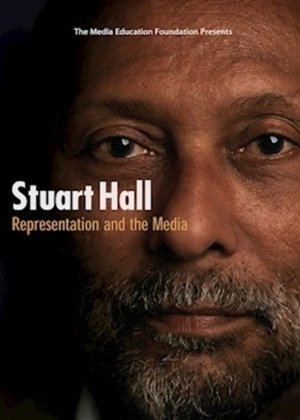 8.0
8.0Stuart Hall: Representation & the Media(en)
Cultural theorist Stuart Hall offers an extended meditation on representation. Moving beyond the accuracy or inaccuracy of specific representations, Hall argues that the process of representation itself constitutes the very world it aims to represent, and explores how the shared language of a culture, its signs and images, provides a conceptual roadmap that gives meaning to the world rather than simply reflecting it. Hall's concern throughout is the centrality of culture to the shaping of our collective perceptions, and how the dynamics of media representation reproduce forms of symbolic power.
 8.0
8.0Seven Years-Journalism without Journalist(ko)
A total of 17 journalists have been fired since 2008, the beginning of LEE Myung-bak’s presidential term. They fought against the companies that they worked for succumbing to power and are now frustrated at reality where censorship of the press by authority has now become a norm. Can they continue their activities as journalists?
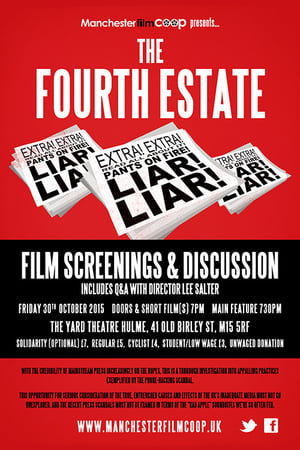 0.0
0.0The Fourth Estate(en)
Produced in the UK on a zero-budget, the filmmakers spent two years contacting and interviewing journalists, organisers and critics of the corrupt industrial practices highlighted by, but not limited to, the Leveson Inquiry in 2011. While the phone hacking scandal illuminated the depth and breadth of the cavalier flouting of legality and integrity in British journalism, there are larger implications and connections to ideology, entertainment, and political economy at work in this crisis. The Fourth Estate is the result of an examination of these connections at work.
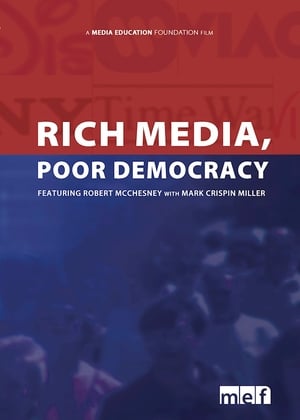 0.0
0.0Rich Media, Poor Democracy(en)
Robert McChesney lays the blame for the US's current state of affairs squarely at the doors of the corporate boardrooms of big media, which far from delivering on their promises of more choice and more diversity, have organized a system characterized by a lack of competition, homogenization of opinion and formulaic programming.
 6.4
6.4Primary(en)
Primary is a documentary film about the primary elections between John F. Kennedy and Hubert Humphrey in 1960. Primary is the first documentary to use light equipment in order to follow their subjects in a more intimate filmmaking style. This unconventional way of filming created a new look for documentary films where the camera’s lens was right in the middle of what ever drama was occurring. Preserved by the Academy Film Archive in partnership with The Film Foundation in 1998.
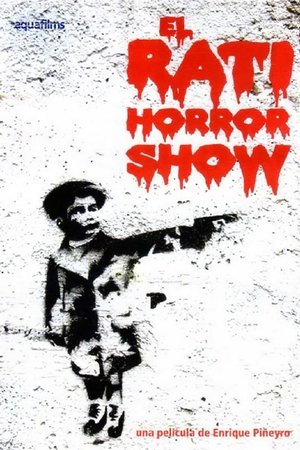 6.7
6.7The Rati Horror Show(es)
"El Rati Horror Show" is a documentary that portrays the dramatic story of Fernando Ariel Carrera, the case of an ordinary man wrongly sentenced to thirty years in prison - not by mistake but deliberately - through the manipulation of a judicial case in Argentina. The film takes as its central point the way in which Fernando Carrera's case was fabricated: the manipulation and alteration of evidence at the scene of the crime; the manipulation of all national media by Rubén Maugeri, key witness to the events and president of the Association of Friends of Commissary 34. On the other hand, it shows how Fernando Carrera leads his daily life in prison.
 0.0
0.0Doidos de Pedra - O Paraíso Esquecido(pt)
From the 60's, the neighborhood of Pedra de Guaratiba, in Rio de Janeiro, was invaded by a varied artistic community.
